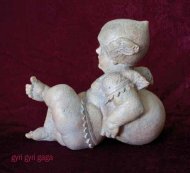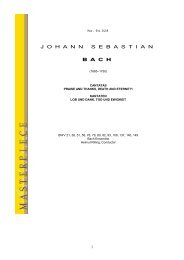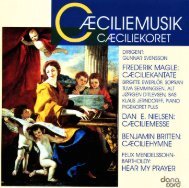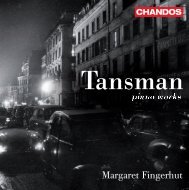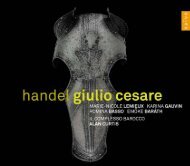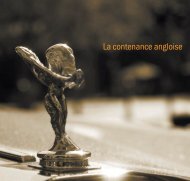You also want an ePaper? Increase the reach of your titles
YUMPU automatically turns print PDFs into web optimized ePapers that Google loves.
given many ptrts back home in Copenhagen, and in<br />
1937 she travelled to New York to study with<br />
Benjamino Gigli's teacher, Enrico Rosati. She appeared<br />
in Town Hall with a lied-programme which, according<br />
to the New york Times, caused "interest and<br />
enthusiasm". and she gave a series of favourably<br />
reviewed concerts in Chicago.<br />
In 1938 Bruno Walter selected her as Cmmen tbr the<br />
new production at the Vienna Opera directed by Cul<br />
Eberl. Again reviews were very flattering: "Sie hat alles,<br />
was eine Cmen haben soll: Temperament, Scharm<br />
und Persdnlichkeit". In his review, Heinrich Kralik<br />
wrote, "Ihre Darstellung hat mit der landkiufigen<br />
Carmen-Koketterie nichts gemein. Keine diimonisch<br />
rollenden Augen, keine aggressiven Nuancen. Aber ihr<br />
ganzes Wesen strdmt Verftjhrung aus, und ihre<br />
feinfiihlige Kunst sublimiert naturhaftes Temperament<br />
und vitale Sinnlichkeit". For the opening night in<br />
Vienna she had as her Don Jos6 Theodor Mazroff, the<br />
Bulgarian tenol The performance was transmitted by<br />
the Austrian radio, and from this transmission a brief<br />
glimpse ofthe final scene between the two singers, both<br />
singing in German, has survived. Later on Jan Kiepura.<br />
the famous Polish tenol sang the part of Don Jose to<br />
Else Brems's Crmen.<br />
Befbre political unrest forced her back to Copenhagen,<br />
Else Brems managed quite a few guest perfbmances<br />
in Prague, Budapest and Warsaw. In Copenhagen she<br />
was given plenty of work. Besides her engagement at<br />
The Royal Theatre, she appeared as a concert-and<br />
oratorio singer. All three fields will be discussed<br />
separately, later on.<br />
During the wu she toured the Scandinavian countries,<br />
and after the wr, in 1948, she sang Carmen at Covent<br />
Garden in London. However, despite her brilliant and<br />
very promising talent Else Brems never achieved intemational<br />
fame. The war was partly to blame tbr this,<br />
but only partly; her own modesty and reserve. as well<br />
as a growing stage fright - a malaise not unknown to<br />
other great artists - stood in her way. ln fact. she felt<br />
more at ease in familiu sunoundings. She had plenty<br />
of work in her native land which also knew how to<br />
honour her. In | 946 she was appointed "Court Singer",<br />
and in 1950 she was chosen "Honorary Artist" by the<br />
students ofCopenhagen. She was awuded the "Ingenio<br />
etArti" medal in 1953, several grants. and other marks<br />
ofdistinction. Besides her work as an opera and concert<br />
singer she started teaching. When she left the Royal<br />
Theatre she was given a lectureship at the Jutland<br />
Academy of <strong>Music</strong> in Arhus, and later she was<br />
persuaded to become a singing teacher at the<br />
Copenhagen University Institute of <strong>Music</strong>ology. She<br />
was a much loved teacher there from 1967 till 1978.<br />
Elisabeth Meyer-Topsoe, the opera singer, is among<br />
her best known pupils. In 1940 Else Brems manied<br />
Stefan Islandi (1907 -94) the distinguished tenor who<br />
was also appointed "Court Singer"; they frequently<br />
appeared together in concerts, and also made a single<br />
record together. Their marriage lasted until 1949. They<br />
had one son, Eyvind Brems Islandi (1940-74) who, at<br />
the time of his tragically early death, was himself a<br />
promising tenor.<br />
The Opera Singer:<br />
It was evident from the time of her first appearance as<br />
Carmen that The Royal Theatre in Else Brems had<br />
aquired a singer who was in a class by herself. "The<br />
genuine Cmen-look, a wmm, enchanting mezzo - in<br />
short, a new Margrethe Lendrop". Praise like this was<br />
showered upon her by the reviewers. The comprison<br />
with the earlier Danish Camen was striking; she too<br />
had avoided the vulgarity which so many inter?reters<br />
of the role have stressed. According to Else Brems,<br />
Johannes Poulsen, the director ofthe 1930 production,



